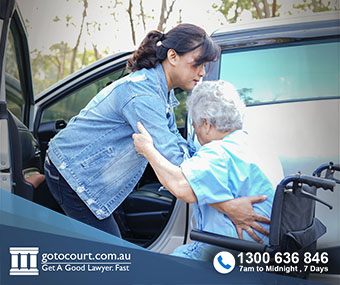Call our lawyers
now
or,
have our lawyers
call you
Working With Children in Queensland: Blue Card Application
Updated on Nov 13, 2023 • 4 min read • 641 views • Copy Link
Working With Children in Queensland: Blue Card Application
A person who intends to work or volunteer with children in Queensland must have a blue card. This is a clearance that confirms that they are a suitable person to work with children. This page deals with the processes for obtaining a blue card and sets out who needs to hold a blue card in Queensland.
The blue card system
The blue card system aims to promote safe and supportive environments for children and young people when they are participating in activities such as childcare, education, sport, and cultural activities.
It does this by screening out persons who:
- have a record for a serious offence
- have a record for a disqualifying offence
- are charged with a disqualifying offence while the application is on foot
- have received previous negative assessments.
Blue cards are governed by the Working with Children (Risk Management and Screening) Act 2000.
Serious offences and disqualifying offences
Serious offences are set out in schedules 2 and 3 of the Working With Children (Risk Management and Screening) Act 2000. They include child sexual offences, child abuse material offences, certain violent offences, serious drug offences and other offences.
Many serious offences are also disqualifying offences.
Disqualifying offences are set out in Schedules 4 and 5 of the Working With Children (Risk Management and Screening) Act 2000.
Who needs to obtain a blue card?
As a general rule, any person who is working or volunteering with children who are not their own children in Queensland must obtain a Blue Card authorising them to do so.
This includes persons who:
- work at a school (when not a teacher or a parent of a child attending the school)
- work in commercial childcare, including nanny services and babysitting
- provide health, counselling or support to children
- provide private tutoring services.
A person who is engaged with work or volunteering that involves contact with children will generally have their Blue Card applied for on their behalf by their employer. A person who wishes to operate a business that works closely with children should apply for a Blue Card directly.
A person who is a registered teacher or police officer in Queensland should apply for an exemption card if they are providing regulated activities to children outside of their usual professional duties.
Blue card processes
There are three stages to the blue card system – blue card screening, ongoing monitoring and the implementation of risk management strategies.
Blue card screening
Blue Card screening determines a person’s eligibility to work with children and young people. It assesses the following:
- criminal charges (and their outcomes);
- child protection prohibition orders;
- disqualification orders;
- reporting obligations under the Dangerous Prisoners (Sexual Offenders) Act 2003 or the Child Protection (Offender Reporting) Act 2004;
- disciplinary information held by professional organisations;
- investigations of allegations of serious child-related sexual offences, even if no charges were laid.
If an application is approved, the applicant will be issued with a positive notice letter and a Blue Card. If an application is refused, they will be issued with a negative notice.
A negative notice will prevent the applicant from carrying on a business, working in a regulated business or providing regulated child-related activities.
Ongoing monitoring
Queensland Police keep a record of everyone who applies for and is issued with a blue card. People who hold blue cards are also monitored by Queensland police systems. Immediate steps can be taken when information on a card holder changes (for example, when a criminal charge is laid against a Blue Card holder).
Both child service providers and Blue Card holders are monitored to ensure compliance with the blue card system obligations.
Child and youth risk management strategies
Organisations providing child services that are regulated under the Blue Card system must implement a minimum set of risk management strategies. These strategies are also monitored and reviewed annually.
Offences
There are criminal penalties that apply for not complying with the requirements under the Working with Children (Risk Management and Screening) Act 2000.
These offences include:
- providing false or misleading information (section 351)
- providing false or misleading documents (section 352)
- employing a restricted person in restricted employment (section 176I)
- applying for a Blue Card while a disqualified person (section 176K)
- applying for a Blue Card after receiving a negative notice (section 176L)
These offences can attract significant fines and even terms of imprisonment.
If you require legal advice or representation in any legal matter, please contact Go To Court Lawyers.

Affordable Lawyers
Our Go To Court Lawyers will assist you in all areas of law. We specialise in providing legal advice urgently – at the time when you need it most. If you need a lawyer right now, today, we can help you – no matter where you are in Australia.How It Works







1. You speak directly to a lawyer
When you call the Go To Court Legal Hotline, you will be connected directly to a lawyer, every time.


2. Get your legal situation assessed
We determine the best way forward in your legal matter, free of charge. If you want to go ahead and book a face-to-face appointment, we will connect you with a specialist in your local area.


3. We arrange everything as needed
If you want to go ahead and book a fact-to-face appointment, we will connect you with a specialist in your local area no matter where you are and even at very short notice.













